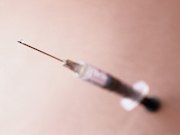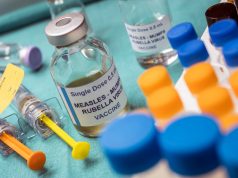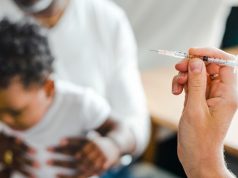Outbreaks among young adults, teens aligned with peaks in mumps susceptibility due to loss of protection
THURSDAY, March 22, 2018 (HealthDay News) — Vaccine-derived immune protection against mumps wanes on average 27 years after vaccination, according to a study published online March 21 in Science Translational Medicine.
Joseph A. Lewnard, Ph.D., and Yonatan H. Grad, M.D., Ph.D., from the Harvard T.H. Chan School of Public Health in Boston, examined whether immune protection wanes against currently circulating mumps virus lineages. Data were synthesized from six studies of mumps vaccine effectiveness.
The researchers found that vaccine-derived immune protection against mumps waned on average 27 years after vaccination. There was no evidence of heterologous virus genotypes contributing to changes in vaccine effectiveness over time, after accounting for this waning. In a mathematical model of mumps transmission, the central role of waning immunity to the vaccine was confirmed in the re-emergence of mumps cases. Outbreaks among young adults from 2006 to the present and outbreaks among adolescents in the late 1980s and early 1990s aligned with peaks in mumps susceptibility of these age groups; this susceptibility was predicted to be due to loss of protection derived from vaccines. Evolution of mumps virus strains that escaped immune pressure would be expected to result in a higher proportion of cases among children, but not among adolescents and young adults.
“Routine use of a third vaccine dose at 18 years of age, or booster dosing throughout adulthood, may be a strategy to prevent mumps re-emergence and should be assessed in clinical trials,” the authors write.
Abstract/Full Text (subscription or payment may be required)
Copyright © 2018 HealthDay. All rights reserved.








